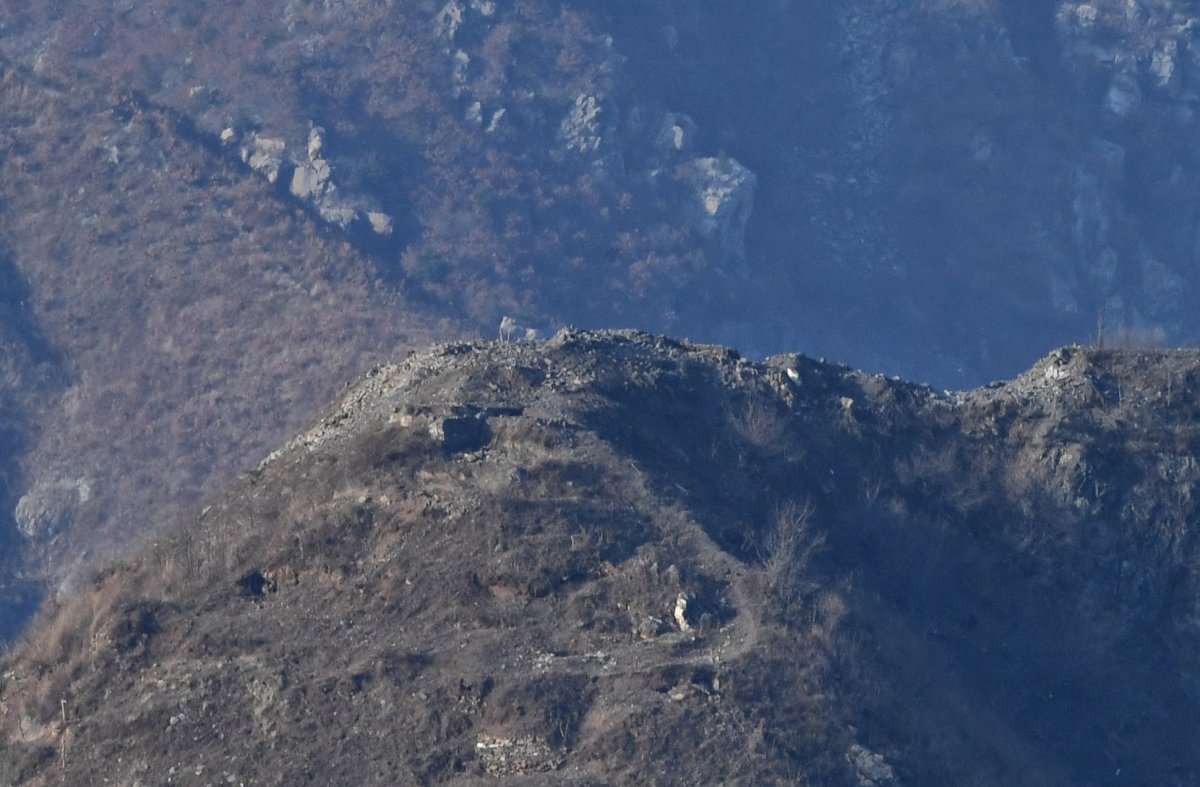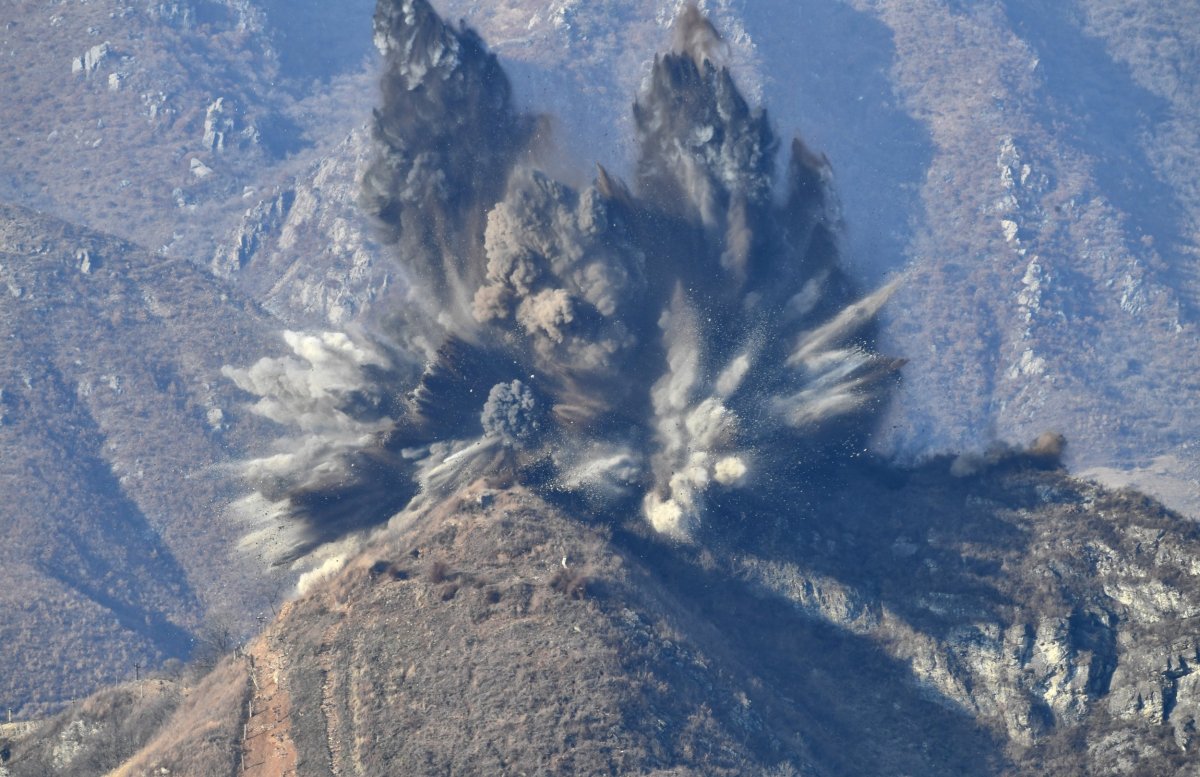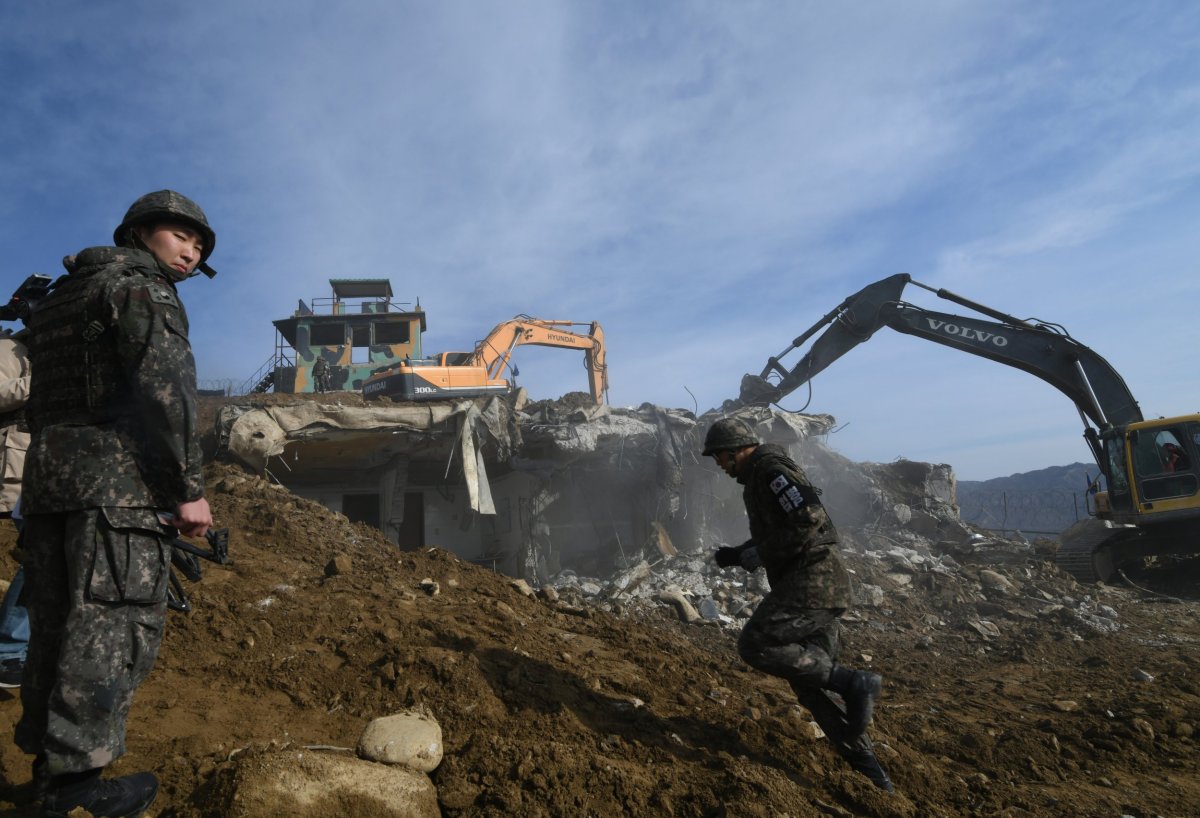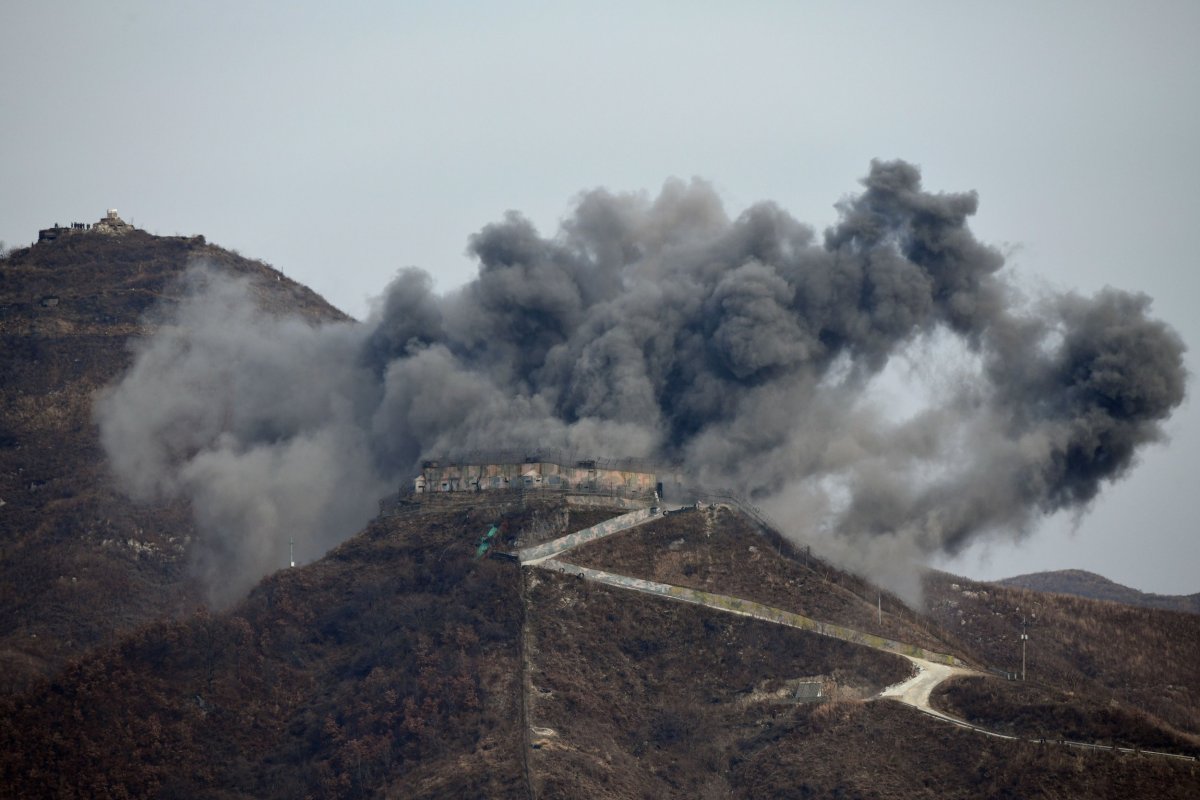North Korea has destroyed a number of its own military installations located near its heavily fortified border with South Korea as part an agreed framework to ease tensions between the longtime foes.
At around 3 p.m. local time—a time zone recently aligned with South Korea's as part of their ongoing peace efforts—North Korea blew up 10 guard posts near the demilitarized zone that divides the countries, the South Korean Defense Ministry told the official Yonhap News Agency. Pyongyang was said to have notified Seoul prior to the detonation, which followed South Korea's own dismantling of guard posts earlier this week.
The North and South Korea militaries, rivals since being split after World War II and fighting one another shortly afterward, agreed in September to begin disarming their respective sides of the demilitarized zone and the Joint Security Area that crosses it.


The agreement came weeks after the fifth inter-Korean summit, during which North Korean supreme leader Kim Jong Un and South Korean President Moon Jae-in met for the third time. This year has witnessed unprecedented contacts between the neighbors, but the United States has expressed reservations toward measures that entail reducing military readiness at the border.
While Moon has prioritized normalizing political and economic ties with North Korea, President Donald Trump has said the U.S. would not lift sanctions nor declare peace to their decades-old conflict until Kim fully denuclearized his country. Pyongyang has long argued that its nuclear weapons were vital to its longevity in the face of perceived U.S. hostilities, but Kim vowed to end his weapons of mass destructions during the first-ever meeting between a North Korean leader and sitting U.S. president in June.
The Trump administration has continued to publicly back Kim's vow to denuclearize and added a second meeting between Kim and Trump was in the works. Still, contacts between the U.S. and North Korea have slowed and many have expressed skepticism toward North Korea's intentions.
Last week, The New York Times and a number of other outlets cited a satellite imagery analysis report by the Center for Strategic and International Studies, claiming it proved that North Korea was continuing to work on secret missile sites in spite of public assurances to the U.S. Trump and a spokesperson for Moon said the report showed "nothing new" and criticized the Times for misportraying the original report's findings.


Though the Times defended its article, experts writing for leading North Korea monitoring site 38 North—to which the authors of the original report regularly contribute—The Nation and The National Interest went on to criticize the newspaper. They also pointed out that Kim has not made any deals requiring him to downsize his ballistic missile program, though the country has not conducted a missile test in about a year, when tensions on the Korean peninsula were running high.
Despite wariness surrounding the removal of defenses by the border, the U.S.-led United Nations command has contributed to inter-Korean efforts on demining the Joint Security Area, as well as withdrawing guard posts and armed personnel. As part of their September agreement, the two Koreas would each leave one frontline guard post for historical value.
Uncommon Knowledge
Newsweek is committed to challenging conventional wisdom and finding connections in the search for common ground.
Newsweek is committed to challenging conventional wisdom and finding connections in the search for common ground.
About the writer
Based in his hometown of Staten Island, New York City, Tom O'Connor is an award-winning Senior Writer of Foreign Policy ... Read more
To read how Newsweek uses AI as a newsroom tool, Click here.








